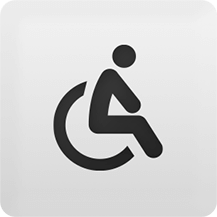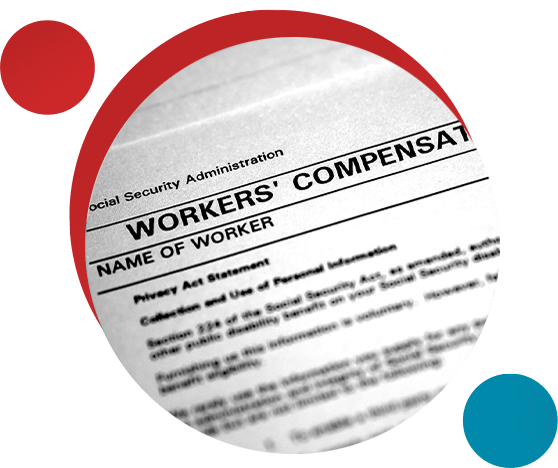I can not say enough good things about my benefits manager who I have worked with for many years. She makes it a pleasure dealing with the dry topic of insurance. She is very pleasant and helpful in getting me the best options for renewals and is alw...
Pay-As-You-Go Workers’ Comp Plans
Get Workers' Compensation Handled The Right Way
Dealing with workers' comp insurance costs is no small feat for small businesses. The traditional method of upfront premiums based on payroll guesstimates can mess with your cash flow. Pay-as-you-go workers' comp offers a solution by aligning payments with actual payroll.
Using a pay-as-you-go method not only meets mandatory coverage, it also eases financial burdens and year-end audit scares. Opt for a pay-as-you-go workers' compensation plan through Connect & Simplify from The Benefit Companies to ensure coverage while maintaining financial stability.
Have a question? Contact us instead.





What is Pay-As-You-Go Workers' Compensation?
Pay-as-you-go workers’ compensation allows employers to make workers' compensation premium payments based on actual payroll data for each pay period. Instead of estimating payroll for the entire policy term, businesses calculate their premiums each time they run payroll. This payment method provides more accuracy and results in significant benefits for both employers and employees.
Pay-as-you-go workers' comp is an innovative and flexible payment solution designed to streamline the process of paying for workers' compensation insurance. Traditional workers' compensation plans typically involve making large upfront premium payments, followed by adjustments based on actual payroll data at the end of the policy term. In contrast, pay-as-you-go offers a more dynamic and real-time approach to premium payments.
While it may not be suitable for every employer, businesses looking for flexibility, risk management insights and cost-effectiveness often find it to be a valuable option. Contact us today to see the benefits of pay-as-you-go workers’ comp for your business!


How Does Pay-As-You-Go Workers' Comp Work?
- Choose a Provider: Employers must first select a workers' compensation insurance provider that offers pay-as-you-go options. Many insurance carriers now provide this payment method for businesses.
- Integrate Payroll: Once the provider is chosen, the employer's payroll system must be integrated with the workers' comp insurance carrier's system. This integration allows seamless transmission of payroll data.
- Transmit Real-Time Data: With the integration in place, every time payroll is run, payroll data, such as employee wages, job classifications and hours worked, are automatically sent to the insurance provider. This data is then used to calculate the premium for that specific pay period.
- Calculate Premiums: The insurance carrier uses real-time payroll data to calculate the premium for the given period. As a result, the premium accurately reflects the actual risk exposure based on current workforce and activities.
- Premium Deductions: The premium amount is deducted directly from the employer's account or payroll in a matter of days. This process ensures the employer remains compliant and up-to-date with their payments.
- Monthly Reports: Employers receive detailed monthly reports outlining the premium calculations and insights into their workers' compensation costs for budgeting and planning.
What is the Difference Between Traditional and Pay-As-You-Go Workers' Comp?
| Traditional Workers' Comp | Pay-As-You-Go Workers' Comp | |
|---|---|---|
| Payment Frequency | Requires employers to make lump-sum premium payments upfront or on a predetermined schedule, such as quarterly or annually. | Allows for premium payments to be made with each payroll run, resulting in a more frequent payment schedule. |
| Premium Accuracy | Relies on estimated payroll figures at the beginning of the policy term. | Uses real-time payroll data for each pay period, leading to more accurate premium calculations. |
| Cash Flow Management | Has an immediate strain on cash flow due to lump sum upfront payments. | Eases cash flow management with payments aligned to payroll cycles and real-time adjustments. |
| Adjustments and Audits | Employers may be subject to premium adjustments and audits at the end of the policy term based on their actual payroll data. | Eliminates the need for these adjustments since premiums are based on real-time data. |
| Ease of Implementation | May involve complex setup and coordination, potentially requiring separate systems or manual adjustments. | Relatively straightforward transition, often integrating seamlessly with existing payroll software. |
Advantages of Pay-As-You-Go Workers' Compensation
Pay-as-you-go workers' compensation offers several advantages for both employers and employees:
Accuracy and Fairness: Since premiums are calculated based on actual payroll data, employers pay for the exact coverage they need. This accuracy ensures that the premiums are fair and reflective of the actual risk exposure of the business.
Improved Cash Flow Management: Pay-as-you-go eliminates the need for large upfront premium payments, providing businesses with better cash flow management. This is particularly beneficial for small and medium-sized enterprises (SMEs) with limited financial resources.
Reduced Risk of Underpayment or Overpayment: With pay-as-you-go, there is a decreased risk of underpaying or overpaying premiums. This is especially important for seasonal businesses or those with fluctuating payroll figures.
Real-Time Insights: Employers receive regular reports on their workers' compensation costs, allowing them to analyze trends and make informed decisions about risk management and workplace safety.
Simplified Audit Process: Traditional workers' comp often requires extensive audits to reconcile estimated payroll with actual figures. Pay-as-you-go eliminates this time-consuming process, as premiums are based on real-time data.
Better Risk Management: By having access to real-time data, employers identify and address potential workplace safety issues promptly. This proactive approach to risk management helps to reduce workplace accidents and insurance claims.
Flexibility: Pay-as-you-go allows businesses to adjust their workforce or job classifications more easily, as premium calculations are updated with each payroll run.
Start Your Pay-As-You-Go Workers' Comp Journey With Connect & Simplify
Don't fall victim to cash flow strain and year-end audit nightmares. Switch the way you handle workers' compensation payments with pay-as-you-go workers' comp plans through Connect & Simplify from The Benefit Companies. Request a quote for your small business or contact us with questions. We're Wisconsin based serving businesses nationwide.
Connect & Simplify through the Benefit Companies administers pay-as-you-go workers' compensation plans to small businesses nationwide and across Wisconsin including in Brookfield, Milwaukee, Plymouth, Sheboygan, Waukesha, and beyond.
Frequently Asked Questions
Most businesses are eligible for pay-as-you-go workers' comp, but eligibility may vary depending on the insurance provider and the state in which the business operates.
Employers must transmit their payroll data with each payroll run. This ensures that the premium calculations are based on real-time employee wages and job classifications.
Pay-as-you-go and traditional workers' comp are priced based on the same insurance rates. However, pay-as-you-go offers improved accuracy, potentially leading to cost savings for employers with fluctuating payrolls.
Pay-as-you-go workers' comp offers the same coverage as traditional workers' comp. The difference lies in the payment method and premium calculation process.
In many cases, employers can switch to pay-as-you-go when their policy term renews. However, it's essential to consult with the insurance provider to understand the specific terms and conditions.






